
The Levels of Emuna
Now, imagine that Hashem has decided that you must be insulted today, for any number of reasons; Hashem simply utilizes the free will of an abrasive...

Having learned the foundations of emuna in the first chapter, we’re now ready to learn about the different levels of faith.
Emuna can be divided into three main levels:
1. Basic-level emuna: This is the firm belief that everything comes from Hashem by way of perfect divine providence, even the tiniest and most seemingly insignificant event.
2. Intermediate-level emuna: In addition to flawless basic emuna, the intermediate believes that everything Hashem does is for the very best.
3. Upper-level emuna: In addition to solid basic and intermediate level emuna, the upper-level individual believes that Hashem does everything for a specific purpose, and that every one of Hashem’s actions conveys a special message.
The above three levels are actually one intrinsic whole, since emuna itself is one entirety. Simplistically, emuna is the belief that there is none other than Hashem, whose divine providence is the root of all things and all events. As everything in the world comes from Hashem, it’s surely for the best, since the main reason for Hashem’s creating the world is to bestow His lovingkindness on all His creations. Consequently, everything Hashem does in the world has a specific rationale and purpose.
This chapter will discuss each level individually, and help us apply its principles to our daily lives.
Section One – Basic-level Emuna: Belief in Divine Providence
This is what Hashem wants!
Basic-level emuna teaches that Hashem is the lone sovereign of the universe, whose surgically-precise divine providence is responsible for every single occurrence – big or small. The very first of the thirteen tenets of our faith (see Maimonides, The Thirteen Tenets of Faith, appears in most prayer books at the end of Shacharis, the morning prayer service) states: "I believe with complete emuna that the Creator, blessed be His name, is the Creator and Ruler of all the creations, and He alone did, does, and will do every single deed."
Simply speaking, everything that happens in the world – from the multiplication of a one-celled amoeba to the earth-shaking events that affect entire continents – all come from Hashem.
Let’s bring the above principle down to a personal level: Everything that happens to us – spiritually or materially, accidental or intended, no matter who or what the catalyst seems to be – comes exclusively from Hashem.
Let Emuna precede intellect
The following salient rule of thumb enables us to begin applying emuna to our daily lives: Anytime something happens that upsets us, we should let emuna precede our intellect. Emuna must be our initial thought! Before the brain and intellect begin blaming our troubles on "natural" forces and phenomena, on others, or on ourselves, our emuna tells us that our particular predicament or situation is exactly what Hashem wants, otherwise it wouldn’t have occurred.
Hashem alone assembles the multitude of "puzzle pieces" – the people, events, and influencing factors in our lives – to create a certain situation.
To effectively use our intellectual powers, we must first remember that anyone or anything that influences our lives – for better or for worse – is merely Hashem’s messenger and an agent of divine will. Once we stand firmly on this basic tenet of emuna, we’re ready to activate our intellectual prowess – according to Torah, of course – and attempt to understand Hashem’s message that’s cloaked within a given occurrence.
For example, someone that forgets to let emuna precede intellect might blame his or her feet pains on the "natural phenomenon" of a bad pair of shoes. Others might attribute their lack of career success to a tyrannical boss, or torment themselves for losing money in a bad investment. Even though the shoes were really poorly made, or the boss is truly a tyrant, or the investment was surely a silly mistake, Hashem is right there on the scene, hiding behind all the events that He causes to create a certain situation. Life’s situations are none other than personal messages for our ultimate benefit.
Letting emuna precede intellect is the proper way to react in any situation. We say to ourselves, "Hashem is making me lose money; Hashem is blocking my career advancement; Hashem gave me the bad shoes!" When we remind ourselves that a given situation comes from Hashem, we’re comforted, knowing that everything Hashem does is for the very best, as we’ll see in the second section of this chapter. Once emuna precedes intellect, then we’re ready to utilize our brainpower in order to understand what Hashem wants from us.
Hinted messages
We can’t possibly define the hinted messages that are cloaked within every situation, for Hashem’s messages vary from person to person and from circumstance to circumstance. Nonetheless, to sharpen our awareness, we’ll cite a few examples. As we progress in this chapter, we’ll learn more about how to process Hashem’s input.
Foot pains signify a lust of money, mistreatment of one’s wife, arrogance, or a lack of emuna.
Financial loss indicates dishonest dealings, insufficient charity, or an unpaid debt from a previous life.
Lack of career advancement can stem from an insufficiently developed or negative character trait, such as arrogance. For example, Hashem may deny giving a person his or her dream promotion, because Hashem knows that their new position will go to their head and make them even more arrogant, to the detriment of their own souls, and so forth.
Who wields the stick?
At this point, we need to learn two important laws of spirituality:
Law #1: Hashem is the cause of every catalyst. The old adage tells of a master that uses a stick to clout a slave; the unfortunate slave certainly doesn’t blame the stick for his troubles, nor is he angry at the stick, nor does he try to appease the stick.
Do we have less common sense than the simple slave of the adage? How can we forget that any situation, person, object, or animal that saddens us is none other than a "stick" in Hashem’s hands? Would we try to reason or negotiate with a stick? Certainly not! Just as the slave turns to his master, we must turn to Hashem whenever we seek to understand what’s happening in our lives. So, with the slave-and-stick adage in mind, we’re now ready to learn Law #2:
Law #2: Any situation of tension, stress, or sorrow is none other than a test of faith. As such, we need to put our intellect on the shelf, for the following reasons:
The intellect doesn’t have the emuna that everything comes from Hashem.
The intellect tries to grasp "rationale" straws that lead to sorrow, anger, and frustration – all of which cause depression and despair.
The intellect looks for a "culprit" at fault, and therefore leads to feelings of resentment and revenge.
Negative emotions literally destroy people’s lives. To avoid them, we need to put our intellects aside temporarily and reinforce our emuna that everything comes from Hashem! There is none other than Hashem! Everything that happens to us is His divine will! Man and nature are nothing more than mere agents, sticks in Hashem’s hands. Rather than looking at the stick, we should always remember to look at who’s swinging it – Hashem! Appealing to Hashem is the only way to solve a problem.
Free will
Most of the things that sadden us fall into one of three categories:
Nature, such as a virus or bacteria;
Fellow human with his or her own free will;
Ourselves, what we often call our own stupid mistakes.
People normally understand that naturally-caused tribulations – such as sickness, heaven forbid – come from Hashem. Sometimes, the same people mistakenly put their trust in doctors and medicines. When the doctors and medicines fail, the sick and their loved ones ultimately turn to Hashem for help. You’ve never seen or heard anyone asking for mercy from a bacteria or virus.
Since we know that Hashem gives humans free will to do good or evil, many of us think that man’s actions are beyond Hashem’s control. Our intellect tells us to take issue with the individual that torments us, and attempt to effect a change in his or her behavior. At a superficial glance, the intellect is correct: Why pray to Hashem when here, standing in front of me, is the person that’s making me miserable? This person possesses free will, so why not appeal to him or her? Maybe I should just hit them in the face! Who needs prayer?
The truth is that we all need prayer, for everything that happens to us comes from Hashem; He alone did, does, and will do every single deed.
Remember this very important principle: Hashem’s personal divine providence over our lives is responsible for any person that brings us pain or pleasure. Here’s how:
Granted, the person that’s causing us pain possesses free will. Yet, any person who torments or saddens someone else – whether physically, verbally, or emotionally – is ultimately punished.
Now, imagine that Hashem has decided that you must be insulted today, for any number of reasons; Hashem simply utilizes the free will of an abrasive person who’s going to being punished anyway, to do the "dirty work" of insulting you. The person in front of you is merely a stick in Hashem’s hands.
Other people’s free will is not our issue! Whenever Hashem is manipulating them to cause us pain, we’re always better off by appealing to Hashem. Most victims suffer tremendous anguish when they try to cope with tormentors on their own.
Blaming others for our suffering is the world’s most tragic mistake. One who blames another – no matter who – not only blemishes emuna, but forfeits the Divine intervention that he or she would have received had they appealed to Hashem. Once a victim forfeits divine intervention, he or she falls into the hands of the tormentor!
Any purgatory is paradise compared to falling into the hands of a cruel human. When we realize that we’ve been suffering because we haven’t appealed to Hashem, and when we began a process of prayer, soul-searching, and teshuva, we often see miracles. Not only will a tormentor stop causing us anguish, he or she will become our loyal friend. Sound far-fetched? King Solomon, the wisest of all men, said (Proverbs 16:7), "When Hashem favors a man’s ways, even his enemies shall make peace with him."
Those who consider themselves righteous martyrs that are suffering for no reason are prime candidates for continued suffering.
Those who suffer, yet fail to activate their emuna and turn to Hashem, fall into one of three categories:
1. The helpless – these are the folks that must deal with elements more powerful than themselves, such as police, judges, tax authorities, bank managers, or employers. Their lack of emuna leads them to believe that they are helpless victims, and are therefore prone to frustration, despair, depression, and in extreme cases, suicide.
2. The equals – these are the victims that consider themselves equal to their tormentors. In such instances, feelings of hate occupy a victim’s thoughts constantly, day and night. Such people can lose sleep for days, weeks, and even months plotting their revenge. In other instances, they degrade themselves by flattering or groveling before their tormentor.
3. The lip servants – these are the folks that pay lip service to Hashem, and say, "Yes, I believe that everything’s from Hashem, but I don’t deserve this," and so forth.
A person truly remains helpless until he or she internalizes the fact that there is none other than Hashem! Once we understand that we have the free choice of appealing to Hashem, we actually take our fate into our own hands, rather than continuing to suffer at the insensitive and often cruel hands of others.
May I never fall into the hands of others!
King David, when faced with a choice between falling into the hands of a human with free choice and falling at the mercy of Hashem, said (Samuel II 24:14): "Let us fall into the hand of Hashem, for His mercies are abundant; but let me not fall into human hands." King David wanted no dependence whatsoever on people; he placed his entire life in Hashem’s loving hands.
No matter how dismal a particular predicament may seem, when we gird ourselves with complete emuna, lean on Hashem only, and cry out to Him from the inner depths of our soul, Hashem uplifts us far beyond the limitations of nature. Miraculously, often suddenly and unexpectedly, we see a solution to what could have been – without emuna, heaven forbid – a hopeless situation.
How unfortunate are those who turn to flesh and blood for relief! When someone trusts anything or anyone other than Hashem, Hashem turns away from that person, leaving him or her at the mercy of the futile object of their trust; then, they’re really in trouble!
People or poisonous snakes
Joseph’s brothers despised and resented him, and decided to kill him (see Genesis 37: 18-24). When Reuven, the eldest brother, saw that the other brothers were firm in their decision, he cleverly saved Joseph by suggesting that the brothers refrain from murder, and cast Joseph into a pit of poisonous snakes and scorpions instead.
Strange, how can this be termed, "saving Joseph"? A pit full of poisonous snakes and scorpions is a certain death! What kind of favor did Reuven do for his brother Joseph? Wouldn’t throwing himself at the mercy of his brothers be better than the nightmare of nature’s most heinous killing creatures?
The answer to the above dilemma is surprisingly simple: Reuven knew that Joseph was a tzaddik with complete emuna. He knew that the instant that Joseph would be exposed to the poisonous snakes and scorpions, he’d pierce the heavens with his prayers to Hashem. Reuven knew that Joseph would cry out with every last ounce of his physical, emotional, and spiritual strength; Reuven also knew that Hashem answers such prayers, and would surely rescue Joseph.
Reb Natan of Breslev explains (Likutei Halachos, Birkot HaShachar, 5), that Hashem designed the universe in such a way that prayer can effect a change in nature. When the Children of Israel cried out to Hashem, the Red Sea was required to split its waters (Exodus 14:10). When Joshua was hot pursuit of his enemies, he commanded the sun to stand still (see Joshua 10:6–16). The prayers of tzaddikim can cool the intense heat of fire (see Daniel 3:10–26), or placate hungry lions (ibid 6: 17-24). In every generation, the true tzaddikim are bestowed with the power to alter the course of nature with their prayers; this power is a condition that The Creator instilled within all of creation."
Yet, Reuven wasn’t fully confidant how his brother Joseph the tzaddik would perform in a test of emuna against a human of free choice in general, and against his brothers in particular. Reuven knew how difficult such tests of emuna can be. Would Joseph bend under pressure, plead and grovel before his brothers? Would he beg for his life, as is they were responsible for his fate?
Reuven was concerned that if Joseph would depend on logic in the slightest and appeal to the mercy of his brothers, then his complete emuna in Hashem might be compromised. As complete emuna enhances a person’s chances to be saved from any peril, a breach in emuna is the gravest danger of all.
Reuven’s concerns were well-founded. In the end, Joseph pleaded for mercy, as the brothers later testified (Genesis 42: 21): "Indeed we are guilty about our brother, for we saw his deep anguish when he pleaded to us, and we paid no attention." Reuven’s gamble therefore paid off, by throwing Joseph at the complete mercy of Hashem. Joseph cried out for help, and Hashem rescued him.
Focus on Hashem
Let’s apply the above lessons in practical terms. From time to time, all of us are faced with a human of free will that’s causing us pain or anguish, such as a policeman who’s pulled us aside, a spouse that’s scolding us, or a child that’s misbehaving. In any similar situation where another person is causing us grief, we must decide conclusively to focus on Hashem and not on whoever’s causing us pain or anguish.
When we focus on Hashem, we need not flatter or plead to other people. We don’t have to crawl on our knees or talk until we’re blue in the face to try and convince others to refrain from hurting us, and we certainly don’t need to react violently toward them. Emuna means that we focus on "The Master" – Hashem – and not the stick in His hand.
Breaches in pure emuna range from the outright to the very subtle, with many levels in between. For example, one who suffers from another person might accept the plight with emuna, speak to Hashem, do some serious soul-searching and teshuva, and yet ultimately appeal to the tormentor and request mercy or consideration. Such an attempt is a flaw in emuna, since the victim attaches importance – even in the slightest – to the flesh-and-blood "stick" rather than to The Almighty’s hand that swings it.
Those who place their fate in the hands of humans blemish the very divine providence that’s designed to guard over them. Conversely, the more we place ourselves in Hashem’s loving hands, the more we amplify the divine providence that delivers us from any evil.
"I’m a failure!" is a declaration of arrogance
Sometimes people suffer from mistakes or failures that apparently seem to be their own fault. In such a case, we need to remember another important rule: Before making a mistake, a person has apparent free choice not to make a mistake. But, after the fact, one must believe that Hashem willed the mistake! Knowing that Hashem willed the mistake, a person has no reason to be disappointed, depressed, disheartened, and certainly not self-flagellating or guilt-ridden.
A person of emuna attributes his or her successes to Hashem’s Divine assistance. One who fails to acknowledge Hashem’s assistance is – without mincing words – arrogant, for he or she declares, "I succeeded!" To avoid arrogance, we therefore frequently use such terms as "God willing", "with Hashem’s help", or "if Hashem so desires". So, if our successes are a result of Hashem’s intervention in our lives, then our failures – once we’ve tried our best – are also the result of Hashem’s intervention in our lives. As Hashem knows what’s best for us, we should accept our failures lovingly and with emuna, just as we accept our successes.
Those who fail to accept mistakes and setbacks lovingly are angry and disappointed in themselves; the same people pride themselves in their successes. Either way is a clear sign of arrogance, since they attribute their fate to themselves.
Failure is the true test of emuna; by virtue of emuna, we acknowledge that our mistake in judgment, bad decision, or any other setback was Hashem’s will. With emuna, we refrain from persecuting ourselves day and night and therefore spare ourselves from untold emotional wear and tear. We can console ourselves that Hashem didn’t want us to win the gold medal or the semifinals game. But, we can always take heart that after any fall, all we have to do is to put a smile on our face, brush ourselves off, pick ourselves up, and start anew with a better effort, as we’ll see later in this book.
A person must believe that any sorrow or deficiency in life is the sole product of Hashem’s will!
Why?
One who achieves basic-level emuna – the belief in divine providence – is well on the way to a life of happiness. Yet, limited basic-level emuna is deficient; although the basic-level believer attributes everything to Hashem, he or she is still susceptible to questions and complaints about how Hashem runs the world. They’re likely to ask, "Why did Hashem do such-and-such to me? I don’t deserve this! Why must I suffer?" The grievance list is long.
Any questions and grievances against Hashem are blatant breaches in emuna. The true belief that everything comes from Hashem must go hand-in-hand with the next level of emuna, namely, that Hashem does everything for the very best. King David says (Psalms 145:9), "Hashem is good to all, and merciful on all his handiworks". Since everything that Hashem does is good, one cannot say that he or she believes in Hashem while complaining about their lot in life – such is a contradiction of terms. So, to achieve complete emuna, we must graduate to the next level.
To be continued…




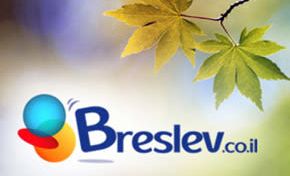
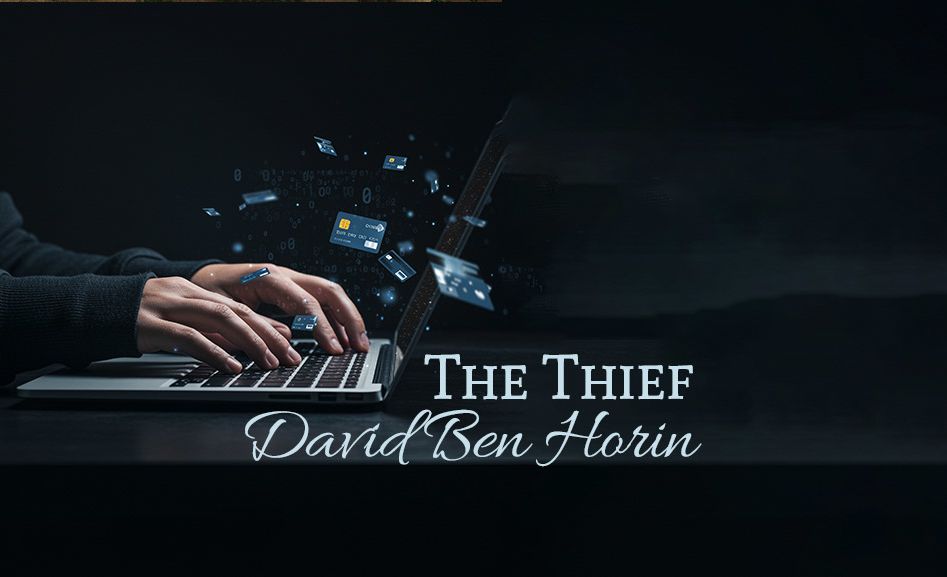



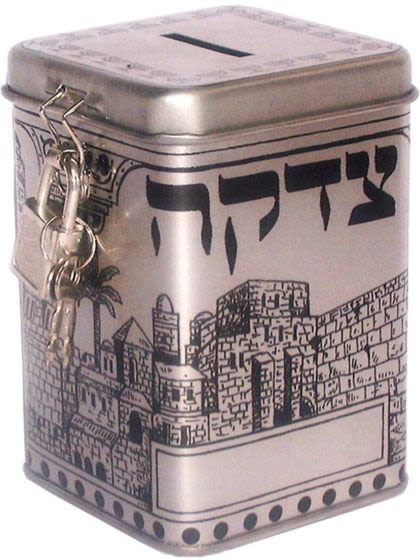

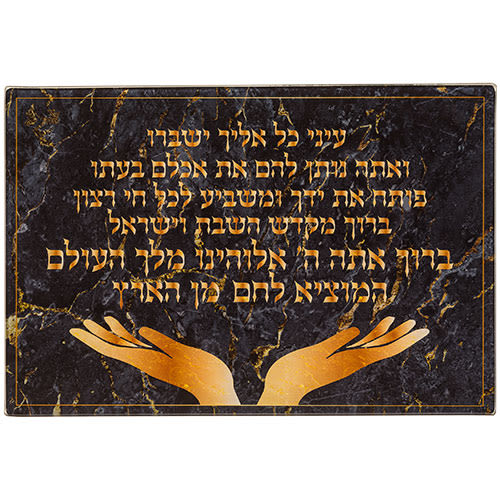

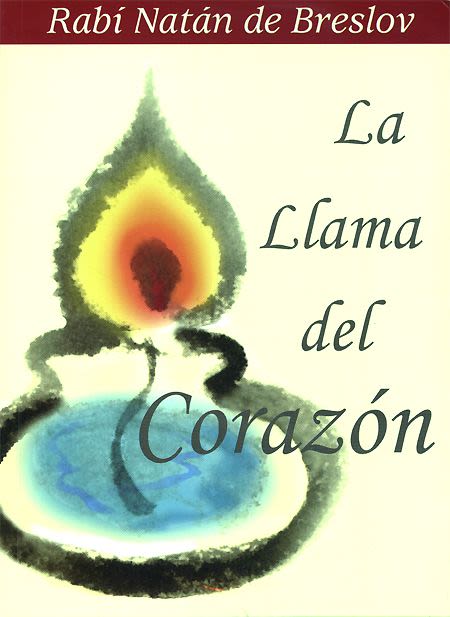
Tell us what you think!
Thank you for your comment!
It will be published after approval by the Editor.